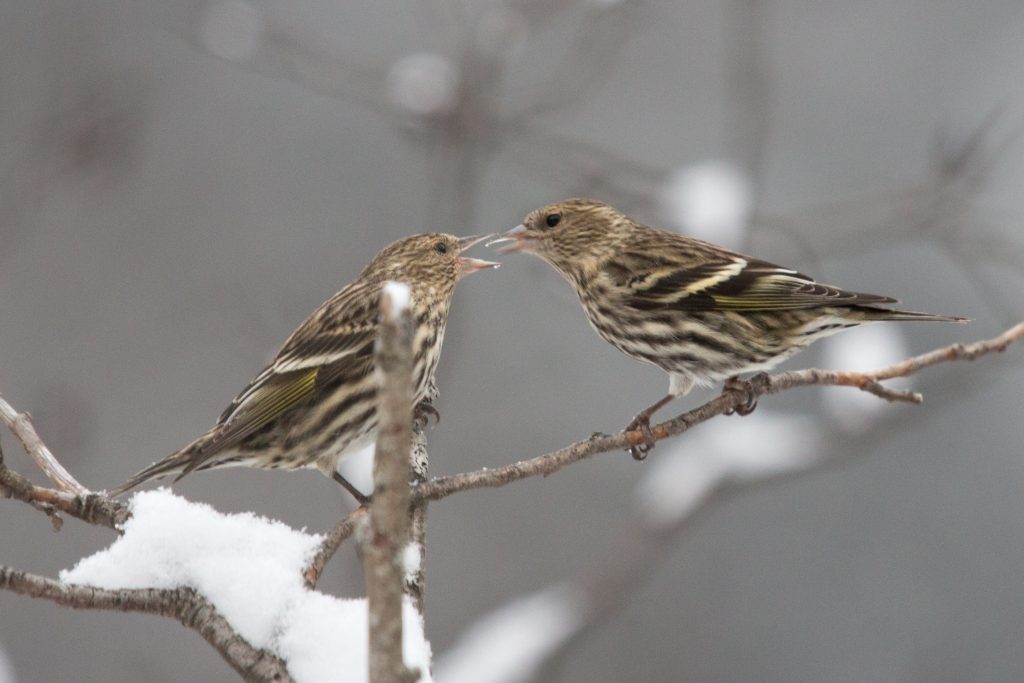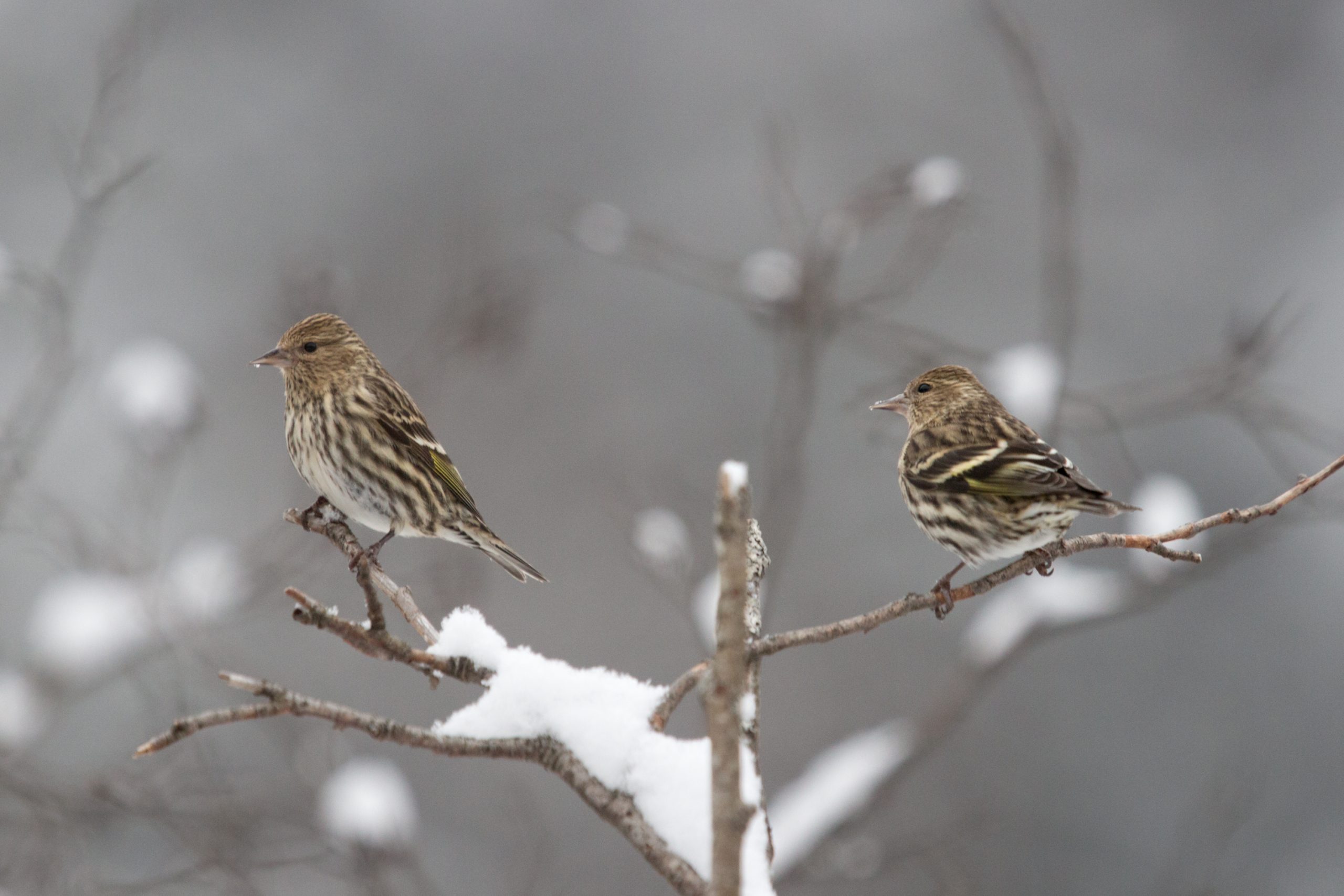Author Ryan F. Mandelbaum:
This winter’s superflight of irruptive finches has been especially rewarding for many of us with bird feeders, as flocks of Pine Siskins, Common Redpolls, Evening Grosbeaks and other boreal visitors have taken up residence in backyards. However, large congregations of birds at bird feeders also increase the chance for the spread of disease—such as deadly Salmonellosis.
As bird feeders, we’re more than just provisioning food; it’s our responsibility to ensure that we’re providing a clean, safe environment so these visitors are in tip-top shape when they’re ready to return to their breeding grounds. If we’re not careful, we may unknowingly be aiding the spread of deadly disease. This winter, reports are already cropping up of Salmonella spreading among irruptive flocks of winter finches, especially Pine Siskins, who waged a massive continent-wide movement. We must be good stewards of wildlife and do what we can to protect these birds by doing our best to stop the spread.
Scientists have long observed Salmonellosis—infections caused by Salmonella bacteria—in songbirds at feeders. Pine Siskins are especially susceptible to this infection, according to their Birds of the World account, but other birds like House Finches, American Goldfinches, and Evening Grosbeaks can also suffer from the disease. Infected birds show symptoms such as diarrhea, ruffled or fluffed-up feathers, lethargy, and overall weakness, followed by death, and outbreaks can kill thousands of birds in a winter.
Irruptions can put Pine Siskins at higher risk for the spread of these infections. Pine Siskins are generalists who will happily visit bird feeders in enormous flocks during irruption years like this one, when they run out of food in the core of their range. However, feeders can have their own dangers. Feeders concentrate birds of multiple different species into tighter and prolonged proximity. This increases the chance of disease spreading directly between birds or indirectly through fecal matter or contaminated surfaces. For example, genetic sequencing found that a 2009 Salmonella outbreak among Pine Siskins in the Eastern United States originated with an infected American Goldfinch, and the responsible strain’s distribution was densest where Pine Siskins were most concentrated.

If we choose to offer food to these charismatic finches, it’s our job to prevent the spread of disease that feeding stations might exacerbate. Following Salmonellosis cases in Washington State this winter, the Washington Department of Fish and Wildlife recommends taking down your feeders for a few weeks, allowing the birds to disperse and feed on wild food sources—especially if you see any suspected cases of Salmonellosis among your visiting birds. If you’d like to continue provisioning food, you should:
- Clean your feeders daily with soap and then disinfect them by soaking them in a mixture of nine parts water, one part bleach, and dry them before refilling them.
- Keep the feeding area clean by regularly raking up shells and droppings.
- Put up fewer feeders—only the amount you can regularly maintain—and spread them out to reduce the concentration of birds.
- While it’s unlikely for the bacteria to spread to humans, it’s still possible; wear gloves so you don’t get sick yourself.
We’re grateful that these birds have visited us during an especially challenging winter; now let’s thank them by taking care of them as well as we can.
Photo Credits Tom Auer
FiRN is a nonprofit, and has been granted 501c3 status. FiRN is committed to researching and protecting these birds and other threatened finch species like the Evening Grosbeak and Rosy-finches, and if you have been enjoying all the blogs and identifying of Red Crossbill call types, redpoll subspecies and green morph Pine Siskins FiRN has helped with, please think about supporting our efforts and making a small donation at the donate link below.
To read more about this winter’s movement of Pine Siskins and Common Redpolls, two of the most susceptible species to salmonella, read here:

